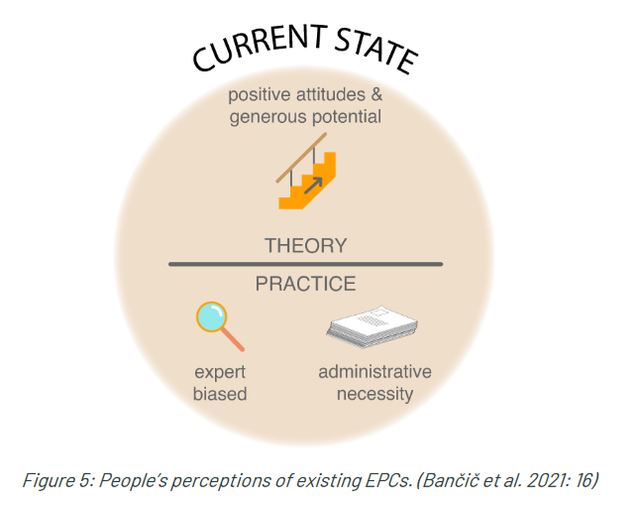Understanding EPC assessment and certification from the people-centred aspects of EPCs and services
A fresh perspective on understanding energy performance certificates from a people-centred perspective.

This report provides a fresh perspective on understanding energy performance certificates (EPCs) from a people-centred perspective. More specifically, it provides a framework for people-centred research of all EPC related things, with a specific focus on how policies are translated into practice through interaction between people, and on the elements of EPC assessment and certification service and its products (the EPCs).
The essential features of the framework include tables for specification of key EPC stakeholders, tables for mapping of EPC journeys, and a structure for the development of specific use scenarios.
The background for understanding EPCs from the people-centred perspective is based on contrasting theory and practice as two largely separate perspectives on understanding existing EPBD policies and EPC schemes. Observations are derived from an initial literature review and largely focus on comparing qualitative insights from the last ten years of EPC assessment and certification practice (Backhaus et al. 2011; Bančič et al. 2021). The proposed crossCert framework largely draws on insights from social sciences and humanities, in particular theories on social objects (Ingold 2012; Nevile et al. 2014; Tateo 2018; Wagner et al. 2018) and social practices (Goffman 1990; Shove et al. 2014; Antczak and Beaudry 2019).
In line with the original outline of crossCert WP5, special attention is given to the promotion and marketing of EPC products and services, design and user experience, and training of accredited EPC assessors. Although the deliverable is primarily intended for use within crossCert, and specifically in WP5 activities, the originality of our approach to the exploration of topics traditionally associated with tenical sciences or policy-making makes D5.1 appealing to anyone interested in applied interdisciplinary research.




